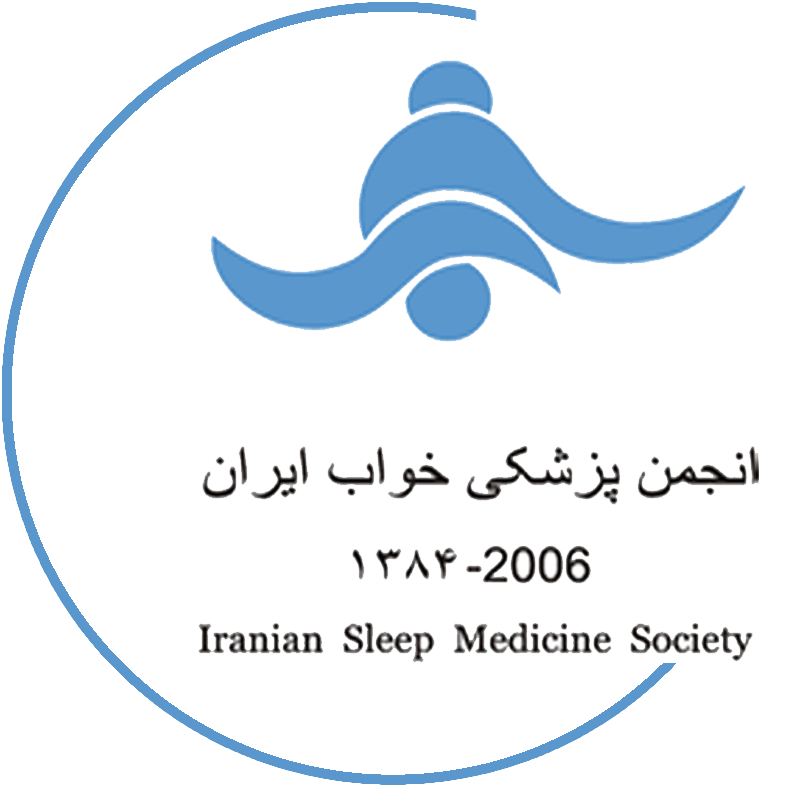Predicting the Quality of Sleep Based on Job Burnout and the Anxiety of Being Infected by the Coronavirus among the Treatment Staff Taking Care of Patients with COVID-19
Abstract
Background and Objective: Psychological problems including sleeping problems, anxiety, and job burnout are more prevalent among the treatment staff of the patients who suffer from coronavirus disease 2019 (COVID-19) rather than other treatment staff. Therefore, the current study aimed to predict the quality of sleep based on job burnout and the anxiety of being infected by the disease among this staff.
Materials and Methods: The current study was a cross-sectional research in which 215 participants from the treatment staff filled out the relevant questionnaires online. The sampling was performed by available method and the instruments included Pittsburgh Sleep Quality Index (PSQI), Corona Disease Anxiety Scale (CDAS), and Maslach Burnout Invento-ry (MBI). Finally, the data were analyzed in two sections of descriptive and inferential statistics using SPSS software.
Results: A correlation among all variables was observed. Moreover, the total model was significant (adjusted r² = 0.37, P = 0.01) and COVID-19 anxiety (standardized beta = 0.33, P = 0.01) and emotional exhaustion (standardized beta = 0.40, P = 0.01) predicted the sleep quality more than variables of depersonalization (standardized beta = -0.22, P = 0.01) and feeling of success (standardized beta = -0.12, P = 0.06).
Conclusion: COVID-19 anxiety and job burnout are good predictors for sleep problems in the treatment staff of the patients who suffer from COVID-19.
2. Zhang WR, Wang K, Yin L, et al. Mental health and psychosocial problems of medical health workers during the COVID-19 epidemic in China. Psychother Psychosom 2020; 89: 242-50.
3. Kang L, Li Y, Hu S, et al. The mental health of medical workers in Wuhan, China dealing with the 2019 novel coronavirus. Lancet Psychiatry 2020; 7: e14.
4. Lambert VA, Lambert CE, Ito M. Workplace stressors, ways of coping and demographic characteristics as predictors of physical and mental health of Japanese hospital nurses. Int J Nurs Stud 2004; 41: 85-97.
5. Dyrbye LN, Thomas MR, Massie FS, et al. Burnout and suicidal ideation among U.S. medical students. Ann Intern Med 2008; 149: 334-41.
6. Dyrbye LN, Thomas MR, Power DV, et al. Burnout and serious thoughts of dropping out of medical school: a multi-institutional study. Acad Med 2010; 85: 94-102.
7. Zisook S, Young I, Doran N, et al. suicidal ideation among students and physicians at a u.s. medical school: a healer education, assessment and referral (HEAR) program report. Omega (Westport) 2015; 74: 35-61.
8. Matheson KM, Barrett T, Landine J, et al. Experiences of psychological distress and sources of stress and support during medical training: A survey of medical students. Acad Psychiatry 2016; 40: 63-8.
9. Lai J, Ma S, Wang Y, et al. Factors associated with mental health outcomes among health care workers exposed to coronavirus disease 2019. JAMA Netw Open 2020; 3: e203976.
10. Bingham A. Developing problem solving skills in children. Trans. Oguzkan F. Istanbul, Turkey: MEB Publications; 2004.
11. Tu ZH, He JW, Zhou N. Sleep quality and mood symptoms in conscripted frontline nurse in Wuhan, China during COVID-19 outbreak: A cross-sectional study. Medicine (Baltimore) 2020; 99: e20769.
12. Bavafa A, Foroughi AA, Khaledi-Paveh B, et al. The comparison of effects of state and trait anxiety on the components of sleep quality. J Sleep Sci 2019; 3: 95-101.
13. Buysse DJ, Reynolds CF 3rd, Monk TH, et al. The Pittsburgh Sleep Quality Index: A new instrument for psychiatric practice and research. Psychiatry Res 1989; 28: 193-213.
14. Farrahi Moghaddam J, Nakhaee N, Sheibani V, et al. Reliability and validity of the Persian version of the Pittsburgh Sleep Quality Index (PSQI-P). Sleep Breath 2012; 16: 79-82.
15. Maslach C, Jackson SE. The measurement of experienced burnout. J Organiz Behav 1981; 2: 99-113.
16. Rostami Z, Abedi MR, Schuffli VB. Standardization of Maslash Burnout Inventory among female students at University of Isfahan. New Educational Approaches 2011; 6: 21-38. [In Persian].
17. Alipour A, Ghadami A, Alipour Z, et al. Preliminary validation of the Corona Disease Anxiety Scale (CDAS) in the Iranian sample. Journal of Health Psychology 2020; 8: 163-75. [In Persian].
18. Giorgi F, Mattei A, Notarnicola I, et al. Can sleep quality and burnout affect the job performance of shift-work nurses? A hospital cross-sectional study. J Adv Nurs 2018; 74: 698-708.
19. Gao X, Ma KL, Wang H, et al. Association of sleep quality with job burnout among Chinese coal mine staff: a propensity score weighting analysis. Sci Rep 2019; 9: 8737.
20. Bavafa A, Khazaie H, Khaledi-Paveh B, et al. The relationship of severity of symptoms of depression, anxiety, and stress with sleep quality in earthquake survivors in Kermanshah. J Inj Violence Res 2019; 11: 225-32.
21. Mo Y, Deng L, Zhang L, et al. Work stress among Chinese nurses to support Wuhan in fighting against COVID-19 epidemic. J Nurs Manag 2020; 28: 1002-9.
| Files | ||
| Issue | Vol 6 No 3-4 (2021): Summer-Autumn | |
| Section | Original Article(s) | |
| DOI | https://doi.org/10.18502/jss.v6i(3-4).10886 | |
| Keywords | ||
| Coronavirus Sleep quality Burnout Psychological Anxiety | ||
| Rights and permissions | |

|
This work is licensed under a Creative Commons Attribution-NonCommercial 4.0 International License. |



